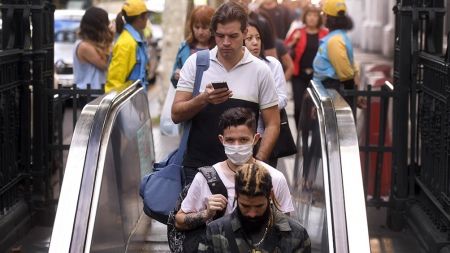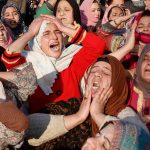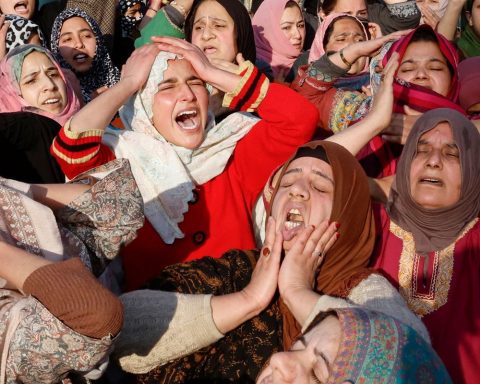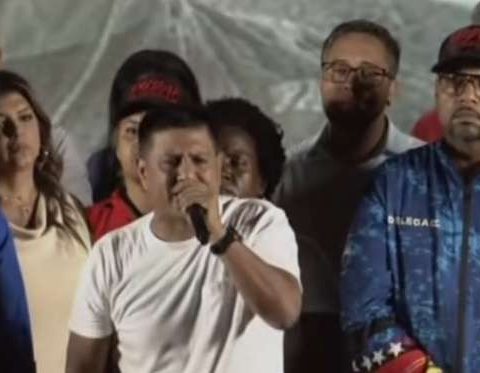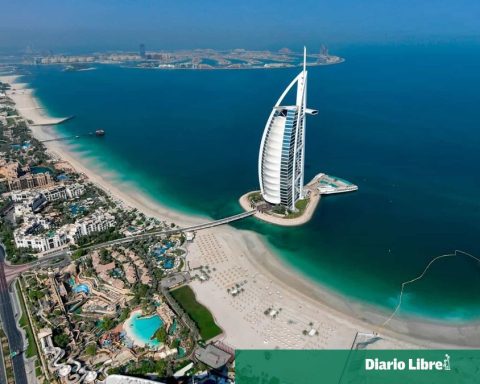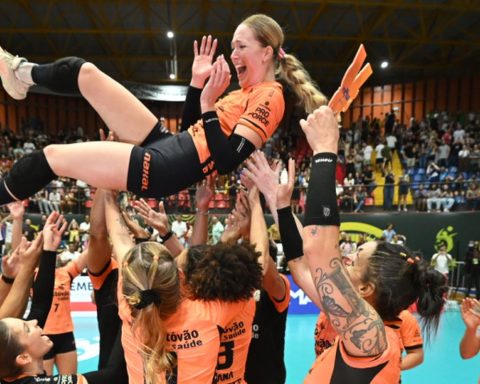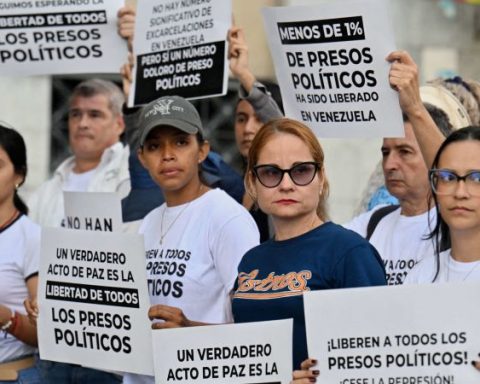Migrants from countries in the region agreed that although there may be cases of victims of discrimination or migratory restrictions “There has been progress in the legislation related to the rights of migrants and in the political and social participation of the country.”
The The UN General Assembly proclaimed December 18 as International Migrants Day in 2000.in order to promote the exchange of experiences and opportunities for collaboration by countries and regions, given the increase in migratory flows in the world and the difficulties of international migration.
According to the UN representation in Argentina, there are 2.2 million migrants, which represent 5% of the country’s total population.
Civil Association December 18 for the Migrant
Santiago Vestfrid, president of the “Civil Association December 18 for the Migrant”made up of 80% of people of that origin and that works with more than 30 civil organizations, told Télam that they are dedicated to “defending the rights of migrants and the fight against discrimination, xenophobia and racism.”
“Whoever migrates to our country comes in search of better living conditions and job opportunities. Likewise, they contribute to the development of the country with their workforce, their investments, their wealth and their cultural diversity. That is why from our association we promote cultural exchange and artistic among the different communities residing in Argentina”, he added.
In addition, he indicated that “this year the most important thing in relation to policies towards migrant populations was the approval of a special regime for migratory regularization that allowed Senegalese and people from member countries of the Caribbean Community to access documentation ( Caricom), plus the Dominican Republic and Cuba”.
Vestfrid, in turn, is a member of the Working Group for the Promotion of the Rights of Migrants in Argentina, promoted by INADI, which on December 10, on Human Rights Day, released a statement prepared in joint venture between various organizations and institutions.
He himself points out that in recent times, “there has been a decrease in the perception of discrimination against groups of Latin American migrants.”
For its part, “the National Migrant Survey of the year 2020 indicates that 65% of migrants experienced at least once a situation of discrimination in Argentina due to their migrant status or their physical appearance. The areas where they appeared These discriminations were on the street (37%), in the media (29%), at work (29%), when carrying out procedures in a State office (26%) and in social groups (24%)” .
The United Nations states, through its website, that currently a large number of people live in a country other than the country of birth and In the year 2020 “there were some 281 million international migrants, which corresponds to 3.6% of the world population, who still face situations of discrimination, inequality, stigmatization, xenophobia, racism and various forms of related intolerance.” .
Even, “the Covid19 pandemic situation and the measures adopted by the context have had an excessive negative impact on the lives of migrants. However, migrants have great potential to contribute to the formation of more resilient societies, inclusive, diverse and sustainable”.
According to the United Nations, during 2020 and 2021, migrants have been on many occasions in the front line of response and fight against COVID-19.
According to the United Nations, during 2020 and 2021, migrants have been on many occasions in the front line of response and fight against COVID-19.
In this sense, “a large percentage of Bolivian, Paraguayan, Peruvian and other nationalities nurses were on the front line of combat against covid during the pandemic, in which Bolivian doctors also died,” said Edwin Sánchez , director of Bolivia al Aire TV, a television channel for the Bolivian community residing in Argentina.
“We as a means of communication have been studying and analyzing for some time the participation of our people in different areas within the society in which we are inserted in Argentina and to which we contribute,” he said.
One of the greatest contributions is that of agricultural workers, where “more than 70% of those who dedicate themselves to the cultivation of vegetables and greens, in the suburbs, come from neighboring countries, mainly Bolivia, and they are the ones who provide us with fresh vegetables in our daily consumption,” he said.
In addition, “many of our people work in textile workshops, some of them are precarious, but others are from renowned companies where they tend to be poorly paid jobs and that is why they have been organizing to fight for salary increases and bonus payments, too” .
Migrants also develop their jobs in construction, education and the media, “making our situation, our customs and how our cultures unite us as South Americans known”Sanchez concluded.
Other Argentina
From this point of view, Claudia Vásquez Haro indicated that “migration has to be understood as a human right but above all the States of our region have to have laws that can allow a real and true South American citizenship to concretize regional integration”.
Vásquez Haro is the president of Otrans Argentina, an organization that defends the Human Rights of transvestites and transgender women in the country, “with a strong component of Latin American migrant transvestites and transgender people, native and Afro-descendant peoples.”explained the referent.
“We share our cultures, diversity and plurality of millennial cultural practices because we are descendants of native peoples, of sexual diversities, transvestites, trans, lesbian, bisexual and non-binary, and we come to enrich the diversity of cultures that we coexist in this country,” he added. .
Many migrants came to the country with their fathers and mothers during their childhood and were formed with the “Argentine culture” like Alicia Rueco, a Uruguayan who has lived here for about 40 years and recognizes herself as Afro-charrúa.
“I belong to the ‘Minga’ cultural artisan cooperative, which claims our Afro-descendant identity and that of the original peoples. My parents came looking for better living conditions and we have permanent residence but there are migrants who have precarious residence permits,” he said.
Although “the preamble to the Constitution says that this country is open to people from all over the world, however, there are institutional instances of discrimination against migrants and those of an ethnic-racial nature. The State must implement migration policies necessary for inclusion and also that it is a guarantor that they are fulfilled,” he said.
